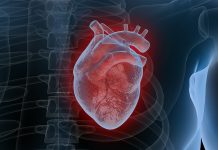
Vitamins are essential nutrients that our bodies need to function correctly, and vitamin B3, also known as niacin, is no exception.
It plays a vital role in converting the food we eat into energy and has a host of other benefits, including improving cholesterol levels and reducing cardiovascular risk in some cases.
However, recent research has begun to uncover a less favorable aspect of vitamin B3 when taken in large quantities. It appears that too much vitamin B3 may actually contribute to heart disease, rather than combat it.
This article delves into the evidence behind this surprising discovery.
Vitamin B3 is found in many foods, including meat, fish, nuts, and some vegetables, and deficiency in this nutrient is relatively rare in developed countries.
Besides natural sources, niacin is also available as a dietary supplement, often taken to help manage cholesterol levels.
It’s well-documented that niacin can increase levels of “good” HDL cholesterol, which helps remove other forms of cholesterol from your bloodstream.
However, the story doesn’t end there. While niacin can be beneficial, there’s a growing body of research suggesting that high doses, particularly those far exceeding the recommended daily intake, could have adverse effects on heart health.
Several studies have raised concerns about the potential link between excessive intake of vitamin B3 and an increased risk of heart disease.
One key piece of evidence comes from research looking at the effects of high-dose niacin supplements.
These studies have found that while niacin can indeed raise HDL cholesterol, it may also have unintended consequences, such as increasing insulin resistance, which can lead to type 2 diabetes—a risk factor for heart disease.
Furthermore, some research has indicated that high doses of niacin can lead to an increase in the levels of a specific type of LDL cholesterol known to be particularly harmful because of its ability to promote inflammation and atherosclerosis (hardening of the arteries).
One of the mechanisms proposed for these adverse effects involves niacin’s impact on metabolic pathways.
At high concentrations, niacin can interfere with the normal function of these pathways, leading to increased production of certain substances that are detrimental to heart health.
Additionally, high doses of niacin have been associated with elevated levels of homocysteine, another risk factor for heart disease, as it can damage the lining of arteries and promote blood clot formation.
It’s important to note that the research is not entirely conclusive, and there’s still much to learn about how niacin affects heart disease risk.
Most of the concerns pertain to the use of high-dose niacin supplements rather than dietary intake of vitamin B3.
The average person consuming niacin through their diet is unlikely to reach the levels associated with these risks.
However, these findings serve as a reminder that more is not always better when it comes to vitamins and supplements.
In conclusion, while vitamin B3 is an essential nutrient with several health benefits, excessive intake, especially through supplements, may pose risks to heart health.
This underscores the importance of approaching supplements with caution, adhering to recommended doses, and consulting healthcare providers before starting any new supplement regimen. As with many things in nutrition and health, balance is key.
Ensuring adequate vitamin B3 intake through a varied and balanced diet is the best strategy for most people, promoting overall health without the risk of unintended side effects.
If you care about heart disease, please read studies that herbal supplements could harm your heart rhythm, and how eating eggs can help reduce heart disease risk.
For more information about heart health, please see recent studies that apple juice could benefit your heart health, and results showing yogurt may help lower the death risks in heart disease.
Copyright © 2024 Knowridge Science Report. All rights reserved.



